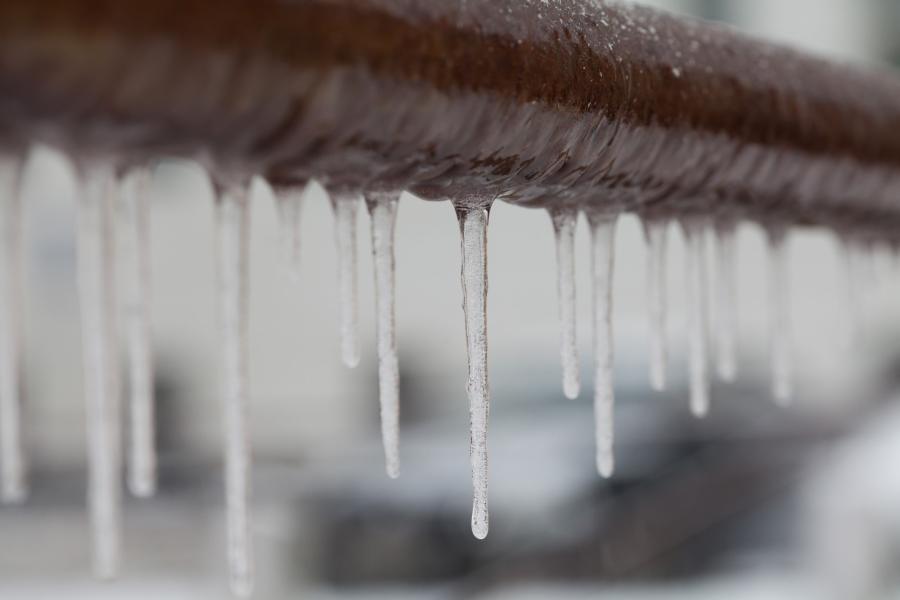Protect Your Pipes During Severe Winter Weather

The single-digit temperatures and negative wind chills that come with severe winter weather cause all sorts of problems — plumbing issues included.
Frozen water pipes cause expensive, frustrating, and unnecessary damage. And if you live in an older home or have experienced frozen pipes before, your plumbing is even more vulnerable.
Pipes that are most at risk for freezing are those in unheated spaces such as garages, basements, and attics. But pipes running along exterior walls or under cabinets are also susceptible.
Following these simple steps to prevent frozen pipes during a cold spell will save you time and money later:
- Let a small stream of water flow from a faucet. Running water through the pipe—even at a trickle—helps prevent it from freezing. If you’re concerned about your service line or water meter freezing, run water in a utility sink near your meter. If a particular pipe in your home is prone to freezing, run water through the faucet connected to it.
- Keep windows and doors near exposed plumbing tightly closed or sealed shut. Cold winds whistling through overlooked openings can quickly freeze exposed water pipes.
- Open kitchen and bathroom cabinet doors to allow warmer air to circulate around the plumbing, especially if your sinks are on an exterior wall. If you have small children, be sure to remove harmful cleaners and household chemicals stored inside.
- Use a portable heater to increase the temperature in a room with plumbing you know is prone to freezing. Always follow safety guidelines and never leave a heater unattended.
- If you plan to be away from home during cold weather, leave the heat on in your home, set to a temperature no lower than 55° F. Or turn the water off at the main valve and drain the outside faucets.
While the increased heat or running water may add a few dollars to your utility bills, the cost is nothing compared to the cost of repairing a frozen pipe or the damage to your home if it bursts. The safety of your home and family is the first priority.
If you do have a frozen pipe, here’s what to do. Most important is to address the issue as soon as possible. If a frozen pipe ruptures, it can lead to significant damage and be costly to repair. Make sure you know where your main valve is located and label it so you can easily find it in the event of an emergency.
